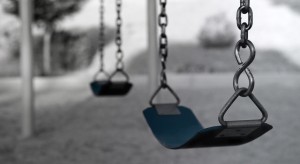America’s birthrate is at an all-time low, which means you’ll be seeing fewer couples with infants in car seats, gigantic diaper bags and sleepless eyes at your local restaurant. Time magazine’s new cover story “Having It All Without Having Children,” by Lauren Sandler breaks down the interesting trend:
Videos By Rare
From 2007 to 2011, the most recent year for which there’s data, the fertility rate declined 9%. A 2010 Pew Research report showed that childlessness has risen across all racial and ethnic groups, adding up to about 1 in 5 American women who end their childbearing years maternity-free, compared with 1 in 10 in the 1970s. Even before the recession hit, in 2008, the proportion of women ages 40 to 44 whohad never given birth had grown by 80 percent, from 10% to 18%, since 1976, when a new vanguard began to question the reproductive imperative… the rise [of childlessness] is both dramatic and, in the scope of our history, quite sudden.
It may be sudden, but it’s not surprising. People now delay marriage until after college and delay parenthood until after establishing careers. By the time they’re finally ready, parenthood is sometimes precluded because of the lure of occupation, the difficulty of older-aged conception or sheer inertia.
What is surprising is the overt level of moral superiority — combined with resentment — in many of the childless people interviewed by Time. There are many good reasons not to have children, including infertility or the inability to meet a suitable spouse. But with new fertility treatments and adoption, the article says people who don’t have children usually are “childless by choice.” And they’re not happy with the way society treats them.
For example, the article claims the childless-by-choice crowd is excluded from cultural discussions, isolated from social gathering and generally scolded for their decision to forego children.
Oops.
I may have been inadvertently insensitive with my terminology. “Childlessness is for someone who wants a child but doesn’t have one. It’s a lack. I’m not lacking anything,” child-free Laura Carroll said in the article.
As I was saying, these “child-free” couples are oppressed by a society that equates womanhood with motherhood:
Products from cleaning solutions to cars are targeted at mothers. Magazines regularly offer features on the trials of parenting— Time’s own “Are You Mom Enough?” cover contributed to the viral tide — and genuflect at gilded icons of celebrity motherhood, a sorority of which the Duchess of Cambridge is just the latest member.
Forty-year-old Rachel Agee laments this child-focused culture. “I resent that the entire culture of this country is obsessed with kids,” she said, pointing out that she has no cute kid photos to post to Facebook like everyone else. In fact, she stopped going to church because it had so many children. When she moved to Nashville, Agee “wasn’t greeted by a culture that supported a life without dependents. It used to be that one’s urban starter kit would include a leather jacket, a guitar and a pack of cigarettes. Today that’s been traded out for Lululemon maternity pants, a stroller and a pack of diapers.”
Others interviewed for the article explain that child-free living is lonely. When their close friends begin having children, the friends get drawn into the vortex of family life. “You build strong relationships, and then they change. It’s great for them, but it sucks for you,” said Tennessean Leah Clouse. Jena Starkes, a web designer in New York, says she can’t continue in friendship with her old friends once they become a part of the “glamorous martyrdom” of motherhood.
The hypocrisy of it all is probably obvious to everyone but Time magazine and its subjects: Many of the “child-free” couples mentioned in the Time magazine article lament that others are proudly parents and wish other people were parents, too. Yet, these very women are proudly child-free and wish more people would be child-free, too.
It all boils down to this: People make choices — different choices — but Time insinuates we are supposed to celebrate only the decisions that transgress the norm … whether it’s non-traditional marriages, being tattooed from head to toe, or childlessness. And the people who take the non-traditional paths are free to act persecuted when the difference is noted. Or, even more subtly, when they are simply reminded of their differences.
Sadly, the Time article points out what most already know. In today’s American culture, if you aren’t being constantly validated, you’re being persecuted.
I guess “glamorous martyrdom” isn’t just for moms anymore.
Nancy A. French is a New York Times best-selling author who lives in Tennessee. Follow her on Twitter @NancyAFrench

